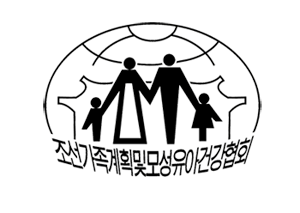

| 31 March 2016
Palestinian Family Planning and Protection Association (PFPPA)
Established in Jerusalem in 1964, the Palestinian Family Planning and Protection Association (PFPPA) is highly active organization both as an advocate for improved sexual and reproductive health and rights (SRHR) and in the delivery of sexual and reproductive health (SRH) services. These include family planning (FP) services (such as the provision of contraceptives of all sorts), counseling and guidance for women in psychological, legal and social matters, lab tests (for both men and women), maternal, antenatal and post-natal care, and infertility services, delivered through 8 service delivery points in the West Bank and Gaza Strip. In total, PFPPA delivered over 105,000 SRH services in 2010, benefiting 53,029 men and women. Empowerment of women, and spreading awareness of women’s economic and property rights, is a significant need in Palestine. PFPPA regularly conducts activities led by legal, medical and psychological experts to focus on issues such as polygamy, segregation in education, family planning in the context of Muslim family life, and pre-marital /post-material relations between the sexes. In addition, the PFPPA aims to strengthen SRH knowledge and life-skills of male and female adolescents, and to promote acknowledgement of their rights, by making sexuality education available to promote a sexual life free of violence and discrimination. Approaches include awareness sessions, radio and TV spots, open educational days, cultural and scientific workshops and seminars, the promotion of centers and services, meeting and dialogues with community religious and official leaders, free medical campaigns, home visits, workshops, seminars and youth initiatives inside and outside Palestine, and the provision of FP publications . PFPPA has contributed to many positive changes in attitudes and beliefs through advocating for legal modifications of specific articles/codes that contravene women’s rights. The PFPPA has highlighted a number of issues sensitive to the Palestinian conservative society including combating HIV/AIDS, unsafe abortion, and violence against women. PFPPA enjoys mutually respectful and complementary relationships with Ministries, civil society organizations, NGOs, donors, community and religious leaders in Palestine, which facilitates networking, communication and implementation of joint projects in support of PFPPA goals and objectives. Contacts Website: www.pfppa.org Facebook: https://www.facebook.com/PFPPA-277999585459 Twitter: https://twitter.com/PFPPA

| 31 March 2016
Korean Family Planning & Maternal Child Health Association of DPRK
The Democratic People’s Republic of Korea (DPRK): Family Health Association of Korea (FHAK) formerly Korean Family Planning & Maternal and Child Health Association (KFP&MCHA) was established in 1990. Family Health Association of Korea is actively supported by the government to diversify family planning services and to improve their quality. One of the major challenges is geographic inequality. 80% of the country’s land mass is mountainous, with mining constituting a major industry. Large numbers of people live in this area, working in coal and mineral mines and forest stations. Fertility rates are much higher than in large urban areas, the contraceptive prevalence rate is much lower, and the number of trained family planning advisers is limited. FHAK has targeted these people with reproductive healthcare and information, education and communication (IEC) programmes. Contraceptive prevalence has increased, and the method mix has shifted significantly from IUD to pills, condoms and sterilization. In 2010, FHAKdelivered 538,000 condoms and 138,000 sexual and reproductive health services through 17 service points, including 9 permanent clinics and 8 mobile facilities. The Democratic People’s Republic of Korea (DPRK): Family Health Association of Korea (FHAK) is actively supported by the government to diversify family planning services and to improve their quality. One of the major challenges is geographic inequality. 80% of the country’s land mass is mountainous, with mining constituting a major industry. Large numbers of people live in this area, working in coal and mineral mines and forest stations. Fertility rates are much higher than in large urban areas, the contraceptive prevalence rate is much lower, and the number of trained family planning advisers is limited. FHAK has targeted these people with reproductive healthcare and information, education and communication (IEC) programmes. Contraceptive prevalence has increased, and the method mix has shifted significantly from IUD to pills, condoms and sterilization. In 2010, FHAK delivered 538,000 condoms and 138,000 sexual and reproductive health services through 17 service points, including 9 permanent clinics and 8 mobile facilities.







